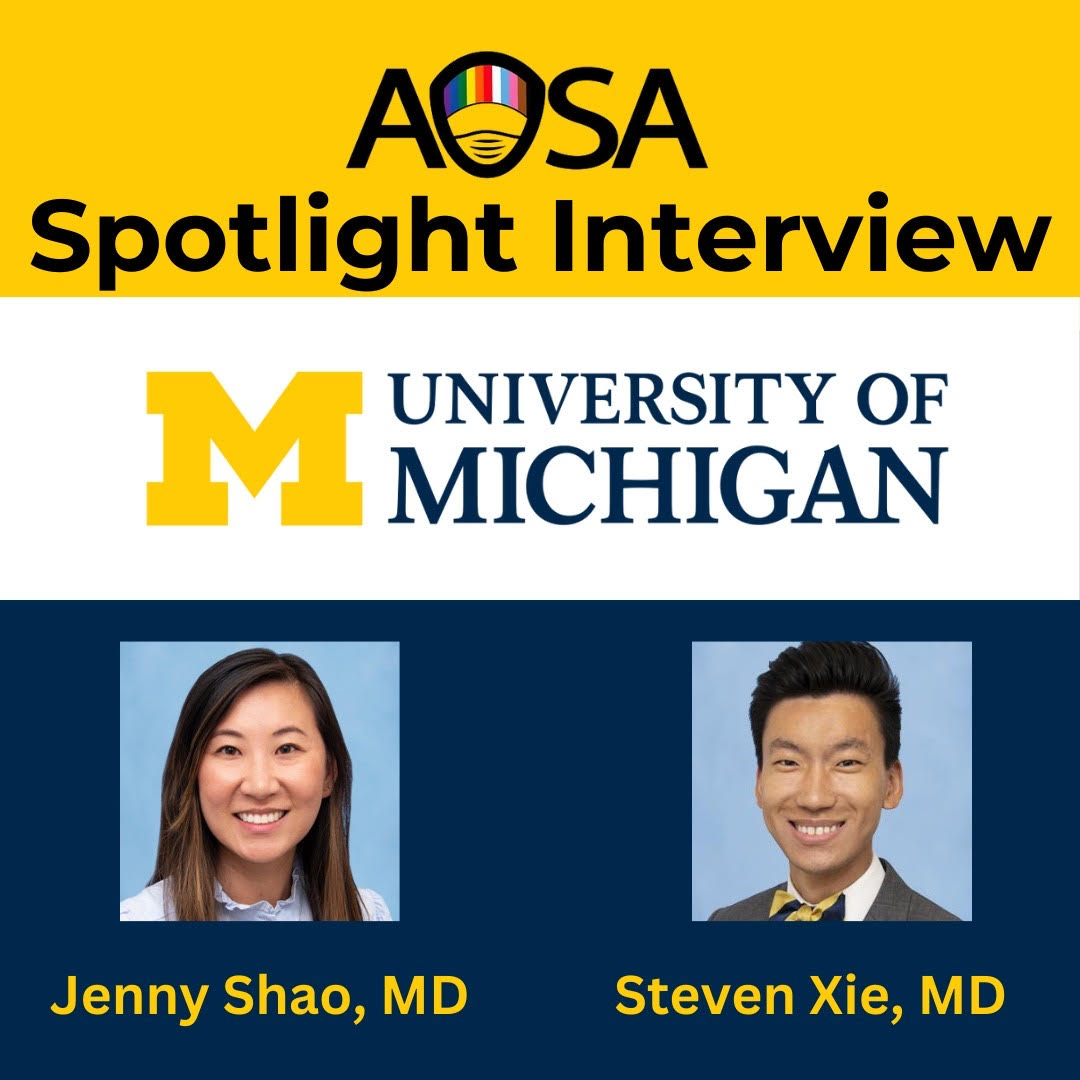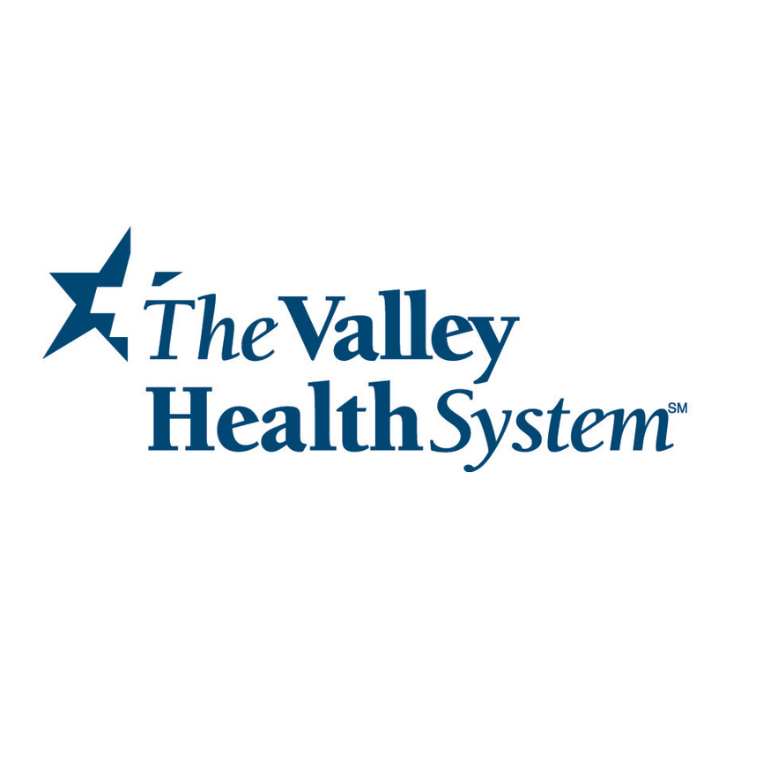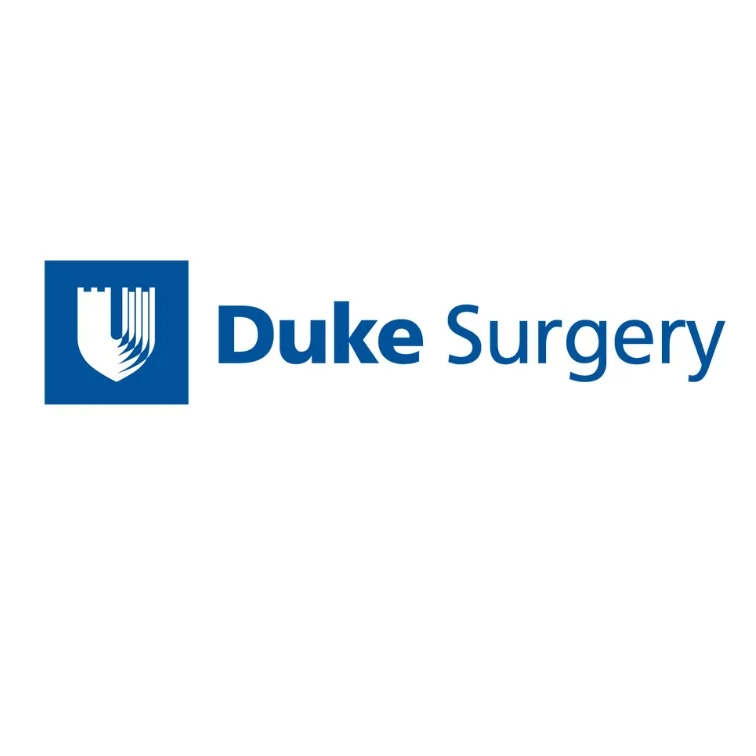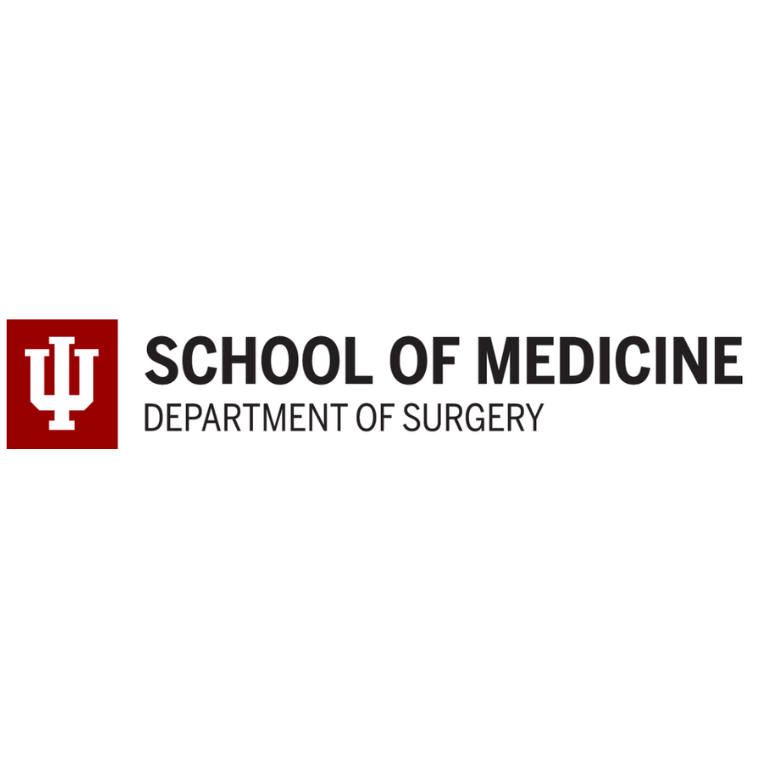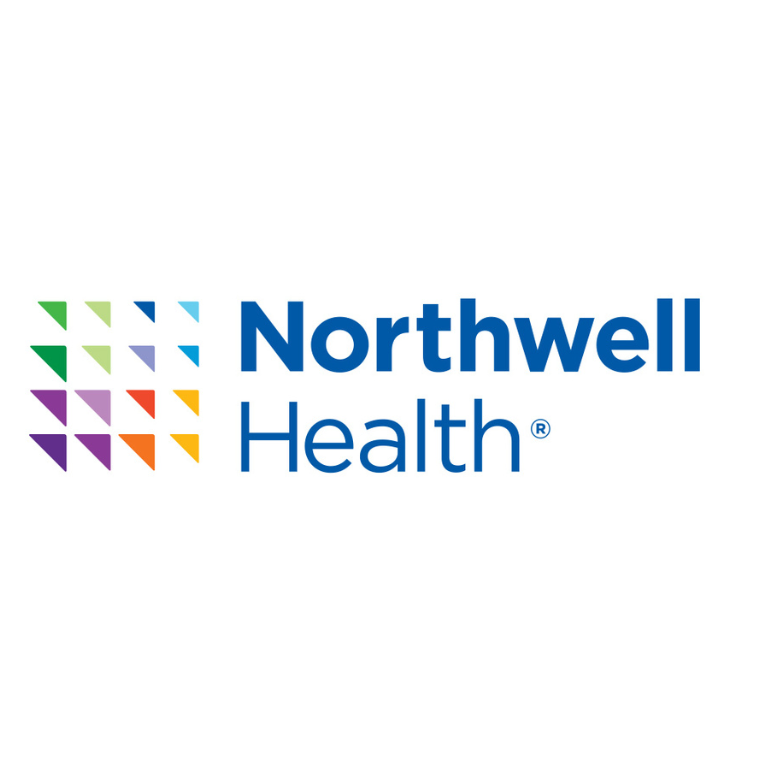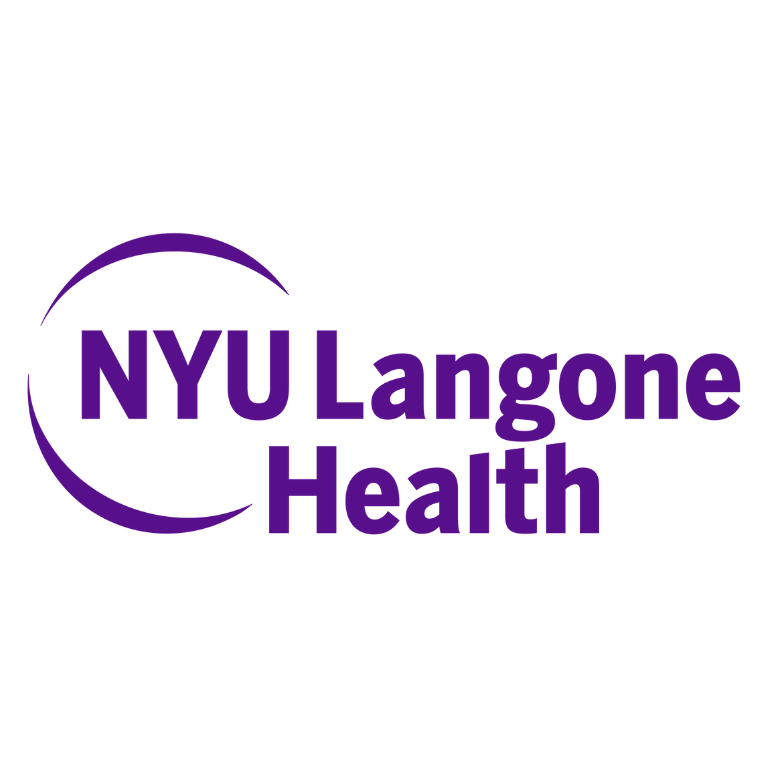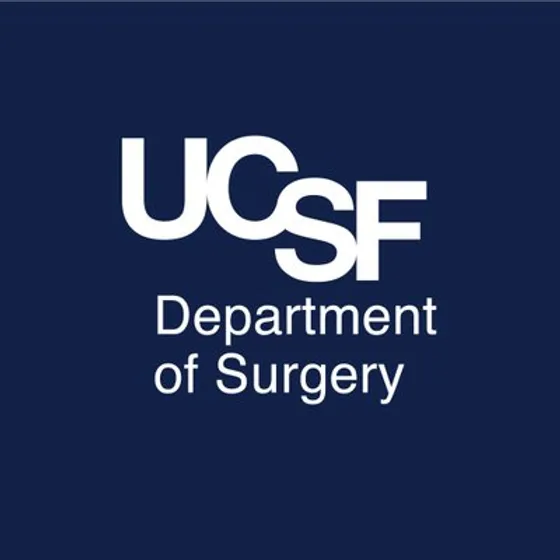University of Michigan PRISM Spotlight Interview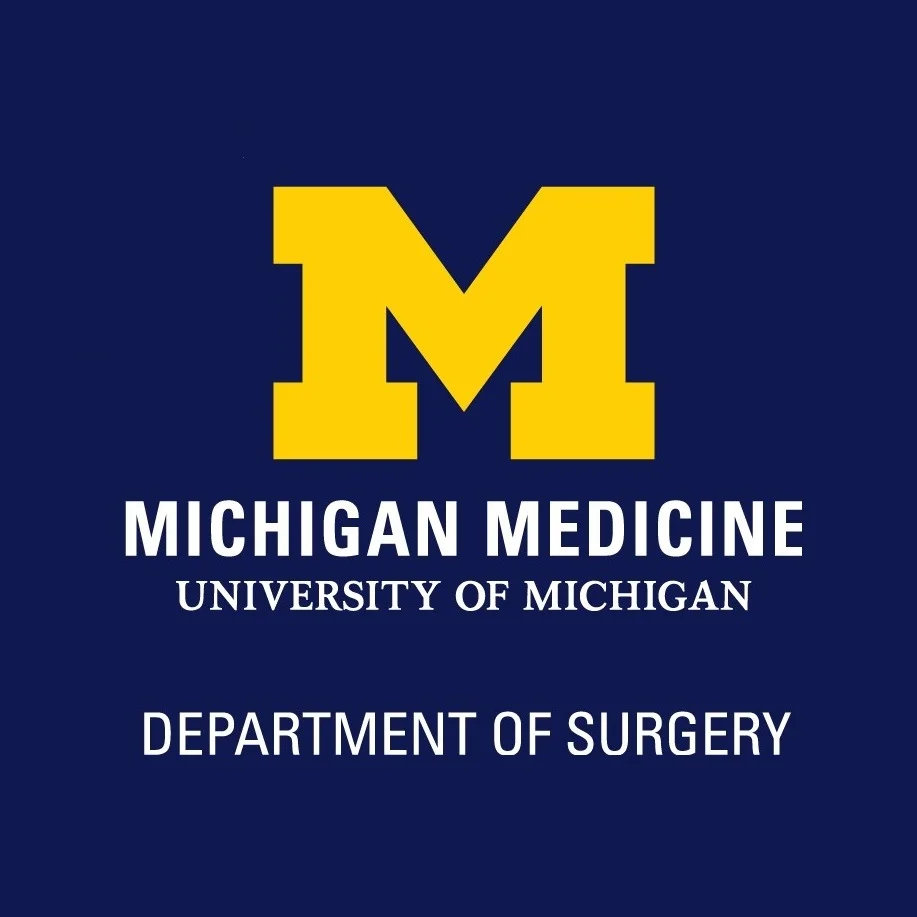 Join us for our January PRISM Spotlight Interview with University of MichiganWatch on YouTube | See additional content on our YouTube Channel
Watch on YouTube | See additional content on our YouTube Channel University of Michigan Prism Spotlight Interview
Anthony Tannous: All right, good afternoon. I am very happy today to be interviewing Dr. Shao and Dr. Xie from the University of Michigan as part of our effort to highlight our PRISM institutional members of AOSA. I'll start off by introducing myself. I'm Anthony Tannous. I'm an acute care surgeon at University of Texas Southwestern in Dallas. And I wanted to give Dr. Shao and Dr. Xie the opportunity to introduce themselves as well.
Jenny Shao: All right, hi everyone. Thank you so much for inviting us. We're really honored to be here today to talk about this really important topic. I'm Jenny Shao, I'm one of the minimally invasive surgeons here at the University of Michigan. One of the other roles I hold is the Vice Chair of DEI. Even though I hold this role, I feel like there are so many of us and my colleagues here who really support this role, so I'm really excited to talk about this issue.
Steven Xie: Hi everyone, I'm Steve. I'm also really happy to be here. I am one of the Gen Surg residents. I'm a PGY-3 right now. Happy to be here. My pronouns are he/him/his, and this means a lot to me because coming into residency, I think DEI work and just advocating for the LGBTQ population as well is something that I wanted to work on and especially going into research, this is huge for me.
Jenny Shao: Actually, Steve, that's a good reminder. I probably should have introduced my pronouns too. So I'm she/her/hers.
Anthony Tannous: Thank you both. My pronouns are he/him/his. And I'm very grateful for both of you being here. I have many questions for you—really eager to talk about what University of Michigan is doing. And I should tell you also that I'm the Chair of the Outreach Committee for AOSA. All right, well, I wanna start off by asking you both, and I know from our prior chat that you are familiar with AOSA. How did you hear about AOSA? And why is it important for University of Michigan to be involved with an association like us?
How did you hear about AOSA? And why is it important for University of Michigan to be involved with an association like us?
Steven Xie: Yeah, so I think in this day and age, especially when I was applying to residency, everything is through social media and internet. So I actually heard about it through Twitter. One of our surgeons told me about it, and I looked at them on Twitter and then I did further research. And I think this was still before it was formalized, and there was a website, and there was an email chain going around. And I thought this is a really, really cool initiative and it's something that I would want to be a part of and help grow in the future.
I think it's important for an institution like Michigan being one of the bigger institutions in academic surgery to be part of AOSA—kind of like leads the forefront of what we want to do in terms of DEI. I think in terms of DEI, the LGBTQ population allies, there hasn't been that much work done previously in the past, and there hasn't been a space for us or an association. So I think this is really groundbreaking that there is now an association of this and that we're sort of normalizing that it is okay for there to be allied surgeons and for there to be out surgeons and, you know, for there to be proud surgeons. So for me, this is a happy association. I'm super, super grateful to be part of it.
Anthony Tannous: Perfect. Yes, we love our name to be associated with joy and happiness. So this is music to my ears. Dr. Shao?
Jenny Shao: So actually I heard about it at a national meeting. I think there was a booth at the Association of Women Surgeons meeting a couple years ago, and I met a couple of members and then I also have some friends within the surgical community who are members. So I think since inception, it's been a really amazing way to educate others and to bring something that's really important into the spotlight. I actually recently listened to the Behind the Knife podcast that you guys did in the interview, and I thought it was really great because I think it allowed me to recognize some of the things that maybe I didn't really realize about being in the LGBTQ+ community. I think I've been really lucky to be a part of institutions throughout my medical school and my training, which have been very open and accepting of other members.
And so it was really interesting to me to hear from that podcast how maybe people felt marginalized going into a surgical community, and they felt like they couldn't be themselves. Because it wasn't something that I think I was even aware of, even though I do have friends who identify as LGBTQ+. It actually really made me think about, you know, the people that I know in medicine and maybe some of the struggles that they have had to go through, or even my patients, where maybe they don't feel comfortable sharing with their provider or really being themselves, and how does that actually really contribute to patient care.
It actually also made me think of one of my really close friends from medical school. And I don't even think I realized it until I listened to the interview that part of his identity wasn't something that he had shared with us initially, but it only was apparent when he became comfortable with us and he knew that we were going to accept him for who he is, that he was able to really be open.
It really kind of put things into a different perspective for me, which I really appreciated. And so I think that's the spirit in which we're coming into this, right? And I hope that University of Michigan can give AOSA a bigger voice so we can educate people and so we can bring people together. I think a lot of the fear that comes out of some of this stuff is just the unknown. And I think normalizing this and talking about it more and more is something that we should continue to do so that everyone is more comfortable and normalizes this.
So hopefully one day, we're not saying that this is DEI work anymore. This just becomes a part of our norm.
Anthony Tannous: Excellent. I mean, I can't imagine how important this is for trainees at your institution to feel that they are supported in this way. You know, in the same line, how does your institution practically foster an inclusive working and training environment for all trainees, but specifically also for those who come from underrepresented minorities?
You know, in the same line, how does your institution practically foster an inclusive working and training environment for all trainees, but specifically also for those who come from underrepresented minorities?
Jenny Shao: So I really hope that there is a certain level of being open and willingness to listen and willingness to learn. So at the time that I've been here at the University of Michigan, I definitely feel like this is a place that fosters vulnerabilities and the ability to share things about yourself and to not be judged for it. And so I think approaching that with really an open mind and allowing everyone to be themselves. I think even something that I've noticed in the last couple of years that's been really important is the sharing of pronouns on Zoom or even in patient charts and recognizing more and more how important that gender identity is and how you address people and recognizing the importance of really acknowledging a person for who they are is I think really important. I also love that there's the tags where you can put your pronouns and your name tags so you don't forget to introduce yourself or to show others that, hey, I'm somebody where you can say, hey, my pronoun is they/them/theirs.
And it's not necessarily, you know, he/his/hers. So I think all of those things are really important. And I think even though we've tried very hard to create an open environment within the Department of Surgery, I do think there's a lot more work to be done as an institution, because sometimes I worry that the inclusivity that we've created here doesn't necessarily generalize to everything across the healthcare system. So I, you know, maybe I don't necessarily know what that's like. And I find that now that I'm an attending, everyone treats me much better.
So sometimes, you know, maybe I don't even see it from the perspective of a medical student, because I think the patients are always going to be nicer to me in some ways. And so I think it's really important to ask people about their experience and say, hey, was that a comfortable interaction for you? Or was that something that, you know, didn't jive well. Or just even speaking up when you see something that's really uncomfortable or maybe recognize an opportunity to learn something or do something differently. Especially if you witness something like a microaggression or any of those things. I think other things that we've done is work on cultural complications.
So we talk about these big topics in a bigger forum at M&M every month and various different topics are presented. And so sometimes it gives people the space to bring up maybe clinical scenarios or interactions between colleagues that they've witnessed and you know what are some potential opportunities for improvement. But I think there's a lot of things that still need to be done and in many directions that we could go.
Steven Xie: Yeah, I think Dr. Shao hit it on the head. The 3 things that I was thinking about was open-mindedness, vulnerability, and using inclusive language. So even when I was an applicant applying to residency programs, everything was through Zoom. And the one thing that I've noticed is some programs will, you know, like, when you're hanging out the residents, they'll ask about your partner and use very like—language that you can apply to a female or male, wherever they identify. And then some people just assume that I'm a male, so I should have a girlfriend or a wife, etc. And I think that kind of breaks down the communication relationship.
And it feels like I can't be open with that person, with that attending, with that co-resident. And so I think University of Michigan, all of the attendings I've worked with, they've either been vulnerable or they've used open language like that. So I really feel like I can share with them if I wanted to about that aspect of my life. And then vulnerability, so all the attendings I feel very comfortable with sharing aspects of my life and how I grew up and things like that. And there's not a specific thing that they're doing. I just feel like their personalities and the vibe that they give off, and I'm using vibe as a very Gen Z word, it's just very heartwarming, and they care about us as people.
And then open-mindedness, like Dr. Shao said, people here are interested in self-growth and learning about other aspects of DEI and, you know, cultural complications that can be very, very nerve wracking and uncomfortable situation when you're bringing up topics regarding race, sexual orientation, and you know we're realizing our own implicit biases and it's very uncomfortable because we don't realize them until we're being called out or we recognize that we were in. But I think having those uncomfortable discussions allows us to be better as physicians, human beings, but also moving forward as an institution. And I know recently, probably like within the last year, there was one about sexual orientation that was really, really good.
And there's always cultural complications about weight, obesity, race, stuff like that. And so I think that's probably one thing that I would recommend other institutions try looking into if there isn't such a curriculum already.
Anthony Tannous: That's excellent. I want to hear more about that, to be honest. When I was trying to prepare for this interview and we were having our AOSA board meeting, I said, do you guys have any questions that you want me to bring up?
And everybody wanted to talk about your cultural complications curriculum. How did that come to be? How often is it programmed into your rotation of M&M and who picks the cases, who presents and what is the discussion like?
How did your Cultural Complications Curriculum come to be? How often is it programmed into your rotation of M&M and who picks the cases, who presents and what is the discussion like?
Jenny Shao: Yeah, so that's a really great question. I think we're actually in the process of revamping it, so I think some of what I'm about to tell you is probably going to change.
So I think there's an original curriculum that was developed from cultural complications, So Chelsea Harris and Dr. Dimick created it sort of together, and there's actually a set curriculum of scenarios. So if you were interested in applying the cultural complications curriculum, you can actually go to the website and request the curriculum and then join and participate in their research study. So initially the slides are already pre-made for you, and there's scenarios to be discussed and traditionally it's been more of an M&M forum. So I think here at the University of Michigan, and Steve can correct me if I'm wrong because I think he's been here a little bit longer than me, you know, at first it was probably a set curriculum, but now that we've gone past the curriculum it's evolved into cases that potentially residents may want to present or attendings or other people.
And so generally we have it once a month and there's usually a set moderator for cultural complications, and then somebody who is set to present a topic. And they're not always comfortable. Sometimes it's very awkward, but I think what's great about it is that it does generate this discussion even beyond M&M. I think a couple of, like maybe just even this past month we had a cultural complications where everyone was talking about it for maybe 1 to 2 weeks afterwards. And so just having that insight to realize that, maybe we're not gonna solve everything in an hour, but bringing it to people's attention so then they can internally reflect on the fact, hey, have I done this before? Is this something that I really thought about?
And just sort of breaking down assumptions and barriers and just thinking about things in a different way or even viewing it through a different lens, right? So hearing somebody else's perspective on a different scenario that maybe you never would have considered because your backgrounds are so different and your experiences have been so different. I think it's kind of that humility of learning from each other and being open to understanding how you can view things differently. And so I think as we move forward, we've talked about maybe creating a team around cultural complications and a little bit more structure around it too.
And so I think those are things that we're going to work on coming up. And so just because we have it, you know, it doesn't mean we're not continually trying to improve on a process when we feel like it doesn't work as well. And I think depending on the institution that's trying to adopt it, it may look very, very different, right? Maybe it's something that you'll wanna create different structures and rules around. And so I think every institution that wants to adopt it will probably need to kind of internally figure out you know what may work best for them.
Anthony Tannous: That's fascinating. That seems to be a level of honesty to aspire to really for all other institutions. Are the medical students involved in this? Do they get to see it? Do they get to sit down and participate?
Are the medical students involved in this? Do they get to see it? Do they get to sit down and participate?
Steven Xie: Yeah, they, so the way we do our M&M or death and complications curriculum or conferences, there are attendings, residents, and medical students. And I will say, I don't believe they've raised their hand and participated with the conversation as much. Some of that might be due to....a lot of resident-attending back and forth. And sometimes they might not feel comfortable raising their hand and, you know, participating, but I think they're all there. And from at least what I've heard between medical students after the fact is that they really appreciate having that discussion or being a part of it and hearing what their attendings and what their residents, who they very much look up to, what their thoughts on these situations are.
I think it helps influence them. And it kind of tells them that surgery as a whole is changing that we're having these really important discussions surrounding all different aspects like everything I mentioned before. Their fear of going into surgery is that they might not belong because of a certain background or characteristic that they identify with and seeing it being played out and having them, you know, us having that conversation and realizing our biases and working towards becoming better for us and for patients, I think for them is a really, really cool experience to be part of as well.
Jenny Shao: Yeah, I think it's good to be vulnerable and to show that just because you're an attending or, you know, you've practiced longer that you still have things to learn. And then there's things that you can still challenge yourself on.
So I think setting that tone and that expectation is actually really, really important. So I really hope that the medical students get some insight from that.
Anthony Tannous: I'm sure they are. I find the medical students these days are teaching me more than I'm teaching them about cultural competence. So, Steve, I wanna talk a little bit about something you mentioned. You felt supported and your faculty is very supportive of you ever since you matched and you became a resident. Was this something that was apparent to you as you were interviewing? I ask that because we're in interview season, we're trying to make sure that people feel comfortable and that they would belong. Was this something you felt during your interview at the University of Michigan? Was it a big factor in your rank list?
And how does the department do that now as you are recruiting?
Was it apparent during your interview at the University of Michigan that it was a supportive environment? Did that factor in with your rank list? How does the department include DEI in their recruiting efforts now?
Steven Xie: Yeah, that's a great question. So this was something that I struggled with during the application season was whether or not I wanted to be apparent with my sexual orientation on my application moving forward into surgery, which is pretty much known to not be so friendly, at least from what I've heard. And so after I made that decision, I think I felt like a little bit of a relief. And I felt like I could truly have these conversations with the people I was interviewing with.
And so, as they were questioning me about my application I could, you know, fire back and ask them what are they doing in terms of DEI and how are the LGBTQ residents being supported. You know, do you have any people or residents in your program that identify as part of the community and how are they supported and what challenges have you faced specifically with that, and so it gave me a lot of insight as to which programs just did not have the resources or did not know what language to use regarding, you know, residents who identify as LGBTQ+, which is still okay, but, then I would ask, what have you done for people of other communities and how do they feel supported? And I think from those questionings, I could really tell which programs I would probably not do well at and which programs that I would most likely thrive at. And so that played a huge role in my rank list. And I think Michigan from all of the questions that I asked our Chair, all the interviewers that interviewed me that day, it just really felt like Michigan was doing a lot with diversity, whether with cultural complications or some of the attendings would have gatherings together.
And it just feels like all of the communities were being supported here. And I just felt like I could thrive and do my research in DEI. And even though it's never been done in terms of LGBTQ research and surgical residents, I felt like at Michigan, their goal is to allow me to do that and support that.
Jenny Shao: I think this is maybe easier for me to say than it is probably for a medical student to do that's interviewing, but I'd also put out there that you probably don't wanna go to a place that you don't feel comfortable sharing your identity anyway, right? Because you're gonna be there for maybe 5 to 7 years.
That's a really, really long time to hide who you are and not feel like you're comfortable being who you are. And I feel like if a residency program is gonna judge you based on your identity, it's not worth it to go there anyway, because these are not people you're gonna wanna work, oh, sorry, hopefully I didn't offend anybody. I need to be cautious. But I really don't think, you know, I think it's worth it to be said, because I feel like medical students say all the time, like your time is more precious than mine. But really, that's not true, right?
We're all human beings. And just because, you know, we're in different levels of our training or career doesn't necessarily make somebody else's time more valuable or less valuable. And so I think that commerce is true too in this scenario where you shouldn't feel like just to impress a place, you have to pretend to be somebody you're not because ultimately it's not maybe necessarily a place that's suited to support you to make you thrive and to do the things that you want to do.
Steven Xie: Yeah, that is totally how I felt. And like weighing the pros and cons of being out on my application was, you know, stressful, but I think at the end of the day, I joke with my friends, like, this is my litmus test.
If this is solely the reason why a program doesn't want to interview me, then they're at a loss. And that's a program that I feel like I didn't want to go to, or I wouldn't be happy at because I wouldn't be able to be my true self with my faculty, with my co-residents. And so I don't know, maybe some institutions chose not to extend an invite, but I found my home at University of Michigan, I found excellent attendings that I work with and learn from every day and I love my co-residents so this probably would not have happened if I chose to hide that fact. And also it's the fact that I've been hiding this part of my identity for like 20 something years now, and I'm just tired of it. I'm sure other people across the country can relate to that. You hide certain parts of yourself to go to your job, you code switch.
And so after a while, it gets very tiring. And it's just this extra layer that you have to, you know, bury for a few hours of work. And then that's just suffocating at the end of the day.
Jenny Shao: And so I think on that note, I think it's so important that we're talking about this. And that's why I think we're so happy to partner with AOSA is because ultimately, you know, what Steve said, nobody should have that experience going to a residency interview and feeling like they have to hide a part of themselves.
So ideally, our goal is to get to a culture in surgery where this becomes the norm, that you can be vulnerable, that you can be who you actually are without the fear of people judging you. And so I don't think we're quite there yet, but I do think we're making good strides in that direction. That's all very great advice.
Anthony Tannous: Little plug for AOSA, which is that we, we're just starting our mentorship project where we have people sign up to either be mentors or mentees. And we're trying to match them and make sure that everybody has a mentor.
And I say that because it sounds to me like both of you would be excellent mentors for some of the medical students that would be there. So I'll send you the link so you can put in your—
Steven Xie: I already signed up.
Anthony Tannous: You already signed up? Okay, perfect.
Jenny Shao: Yeah, but I'm happy to help. I would be happy to sign up. So please accept it.
Anthony Tannous: So, because this came from really med students in a volume asking us, should I be out? Should I say it, you know, asking, I need some guidance, some advice. And to a certain extent, we were all where Steve was, we're asking ourselves, should we be out or not in our application.
So these are pearls of wisdom that you've shared today. So there is another program at University of Michigan that I wanted to ask you about. So University of Michigan hosted the SBAS last fall and did a wonderful job with it. Really, it made me kind of question whether I'm happy where I am or should I start looking for jobs there? But I am happy where I am.
But that's how good of a job University of Michigan did. But Dr. Newman, Erica Newman, spoke about a consult service that you have where, I forget the name, but if there's an instance of discrimination, anyone or like suspected discrimination, anyone can fire up this consult. How does that work? What, can you tell me more about that program?
Can you share more about your consult program?
Jenny Shao: Yeah, actually, Steve, have you been involved with it at all?
Steven Xie: I haven't heard about it.
Jenny Shao: Yeah, So I actually had the privilege of going to one of those meetings. So it's actually for mostly patient-centered things. And I actually think this was a really great example of identifying something, like a certain need within the healthcare system and then figuring out a way to solve a potential problem or figuring out ways that, you know, we could potentially identify something.
So essentially I think this is a patient service. So patients can report when they feel that they may have experienced an incidence of discrimination or something with their clinical care is not necessarily, I think, in line with what they were expecting, especially if they feel like there's other factors that may be influencing a clinical decision. And so in the particular meeting that I went to, this is a service where it's not just the patient, but there's a social worker, the case manager, there's physicians, there's a whole team of people that then come together and sort of talk about what the patient perspective is. And I think so much of it has to do with listening, right? And maybe letting go of some of our preconceived notions and assumptions, because I think so much of what we're trying to do in this space is really to let people go of their implicit biases, whether they recognize that they have them or not.
And so then the service essentially goes and works with the patient to figure out what are some things that potentially we may be overlooking? What are some barriers to care that maybe we don't recognize that the patient is facing that's ultimately causing sort of this discrepancy within their patient care? So I think there's a lot of different layers of all of this that sometimes it's really easy for us as physicians to go like, oh, well, this patient just does this because of X, Y, or Z. But in reality, there's so many different things that kind of go beyond that.
And so, I think one great example is obesity in medicine, right? There's so many ways that I feel like, you know, a lot of people are just saying, oh, like they should just diet and exercise and all these other things. But ultimately it's not that simple, right? Like, do you have the socioeconomic means to even buy healthy food and eat normally? Do you have access? Are you in a food desert?
Do you have other medical conditions that may be contributing to your weight? So I think sometimes it's really easy for us to just assume that it's one thing that particularly the patient isn't doing, but maybe there's so many other factors that we've overlooked in these social determinants of health or potential inequities that we can correct and fix. So ultimately that's the goal. I've been wanting to be more involved in it, but I haven't had a chance yet. So hopefully I can let you know more.
But to my knowledge, essentially a team of collaborators will review and discuss the patient case and essentially make some recommendations about how to proceed or how to potentially navigate difficult situations, which I think is really helpful to sort of have that thoughtfulness.
Anthony Tannous: And it really shows a commitment from the institution to get it right, and do right by the patients, which is very important for a lot of trainees to see their home, like Steve mentioned, and do that. So that's great stuff. All right, well, I'm gonna ask some personal, not too personal, feel free to share as much as you want. Do either of you care to share some personal challenges that you've had on your path to becoming the surgeon that you are right now in the, you know, in the realm that we are discussing, and how you've overcome it and how maybe your institution helped you overcome it for us to learn from.
What challenges have you faced and how has your institution supported you?
Steven Xie: Yeah, I'm pretty much an open book. I sort of discussed growing up, I had a really hard time with my Asian American identity and growing up, it was a struggle because I think there's certain stereotypes that are placed onto Asian Americans. And my parents immigrated from China for my brother and me to have the American dream, the best life possible, but faced a lot of microaggressions and bullying growing up in New Jersey, going to high school in New York City. It was very, very tough. And then all of this mixed in with my sexual orientation and just being very confused as to like, is this normal? I had nobody that I could really talk to.
So a lot of that was internal struggling and kind of seeking out help and trying to find someone who looks like me, who might have been going through the same things as me, but for me, I couldn't really find that go to person. And so a lot of this I had to struggle with by myself and with Asian culture, like, I don't know how it is for other families, but like, I didn't really have the means to speak with my parents about issues like this, especially not my sexual orientation at the time.
But, you know, there's a language barrier, there's a culture barrier, and there's so many barriers that are placed onto me at that time that I really struggled with. And so I instead just focused on my studies and I just focus on the next chapter, like go to a good college, go to medical school and, you know, work on yourself professionally. And, you know, thankfully when I was in medical school, I really found a good group of friends who accepted me for who I was and helped me work through a lot of the struggles I had as a child with my Asian-American identity, but also basically telling me it's okay to be non-heterosexual, it's okay to be a gay male especially like a gay Asian American going into surgery so a lot of that has been more recent.
And I think Michigan has helped me with that. Like just one of the attendings, like I've discussed with multiple attendings, my struggles as an Asian American or how being gay in surgery can be a little bit difficult and challenging. And patients will just assume that I'm a straight male and they'll ask, oh, are you married? Do you have a girlfriend and things like that? And I like tend to unpack that with them.
Cause when I do go to work, I do code switch a little bit. And I put on this very professional layer to me. And then University of Michigan has done a really good job of recruiting co-residents who are also very open and vulnerable. And I share basically almost everything about my identity and the struggles I've been through with most of them and a select few I've gotten very close to, and they're like basically family now, and they really helped me grow as a person,and I've learned so much from them but I'm also grateful that they're willing to learn from my past too. And, you know, they'll help other people that they get to meet throughout their life with similar situations.
Jenny Shao: So Steve and I didn't rehearse our answers before this, but I think also being Asian-American, I can really identify with some of the things that he said. And so I think, so I grew up in the Midwest in Indiana. And so I think, and I don't even think I realized I was doing it when I was younger in college, but I really don't think I became very comfortable with my Asian-American identity until I was in my 30s. And so for the longest time, I think I even like internally didn't really realize that I had this identity struggle because like Steve was saying, you know, when you're in a place where you're sort of not the norm or maybe the majority group, you just wanna fit in, right?
Like that's kind of human nature. You just wanna be like everyone else. And I think there's a lot of that. So I think for the longest time, I don't want to say I lied to myself, but I was just denying that part of my identity. As I've gotten older, I think I've become a lot more comfortable with identifying my cultural heritage and really tying that back more into my life.
And so, you know, and I wish somebody had told me that when I was younger, because I don't think anybody ever sat down to me and said, you know, Jenny, and when you're older, you're going to feel like that was really important to you and that's not something that you wanted to lose sight of. So, you know, it's really important to for me to teach my son how to speak Mandarin or to teach him his cultural heritage, because I don't want that to be something that gets lost, right? And I think it's okay to be proud of these things. But growing up as somebody that's maybe different than everybody else, you just don't know that. And when you're a teenager, you just try to be like everyone else.
And so I think so much of this is like self-growth, right? And like self-reflection and over time realizing that these are things that are okay. And I think the more we talk about it the more that other people realize, hey, like I also feel that way. And maybe it's OK for me to share that part of myself. And I think some of this also has to do with intersectionality, where if you have these multiple layers and identities, they can really tie into each other and then really essentially, what's the right way to say this, create additional social pressures that you didn't even necessarily realize were there.
For the longest time, I feel like I didn't even recognize that about myself. But as I've grown older and sort of become more comfortable with who I am and my vulnerability and being able to share that, I'm really hoping that I can use that experience to help others and to show them that it's okay to be who you are and to not have to hide anything about yourself.
Anthony Tannous: Yeah, excellent. Sounds like you both have kind of braved the wilderness in a way and, you know, come out of the other end with a lot of perspective and insight. How do you pay that forward if you see a trainee or a colleague or someone who may be hiding a part of themselves because they are worried about how they will be perceived or treated or they're struggling in any way. What is your approach to that? How do you help?
How do you help trainees and pay it forward?
Steven Xie: Yeah, I think one just like being a really good listener is very key and not imposing your life experience or how you got through a certain situation onto them that quickly, because even though for me, like the situation may sound the same, it's truly not the same. They could have a different family situation or a totally different thing. So just listening to them.
And then, you know, what I found helpful is asking them, how can I be of help? Like, I can offer them what I've done in the past, my life experiences, how I got through it. But really, it's like that individual's own journey. I can tell you to be out and proud. But like, when someone told me to do that, I was so scared.
You need to make that decision and, you know, truly, like, take a leap of faith, if you will. And so I found being really good at listening is really helpful. And just being vulnerable, again, I think is scary, especially in a career like this, but you'll learn so much more about your patients, about your fellow co-workers, co-residents, if you just be vulnerable. You rarely really scratch underneath the surface if you're not being vulnerable. And I think that leads to, for me, especially a better work life balance and happiness.
Now that I've had these deeper discussions with some of my coworkers, you know, You get to talk about your biggest fears and biggest challenges in life. And you really, really do make relationships that last. And I think when people talk about their fellow co-residents as family, I think that's because those co-residents have chosen to be vulnerable with each other and develop a deeper understanding of each other. And I think moving forward too, that like helps with your career growth and your growth as a person and like how you treat other people as well.
Jenny Shao: Yeah, so I definitely agree. I think listening is really important. And I think now that, I don't wanna say I'm in a position of power, but like relatively speaking, I think in the hierarchy, I really try to get it across to the medical students that what they value, what they think is important. And I really try to normalize things now that I think surgical culture should support. And so I know I probably shouldn't say this coming from a very academic institution, but I tell people all the time, it's okay to not want to do research and to want to do surgery. It's okay to do those things because I feel like we don't say it often enough.
And so you kind of go through life thinking it's not. So I think sometimes it's just validation of the other person's thoughts, right? And maybe saying the unpopular opinion that people don't want to tell you. And so I think we really have to look at it as in, where do we want surgical culture to go and how do we wanna shape and influence that? And what do we wanna normalize going forward?
And so I think the way that our culture has been traditionally in surgery is going to continue to change and hopefully for the better. But I think we recognize now that there's so much value in different types of surgeons and having diversity not just in race and gender and you know identity but also in diversity of thought and diversity of like how do you want to make a difference? And so maybe not all of us will want to be, you know, NIH-funded researchers, but I think it's great that some of us want to do DEI work and bring about surgical culture change and that we want to study that. And we should promote that diversity and cheer for people who want to do different things. Because I think it's only really through this idea of looking outside of what we've normally done, can we make progress in advance.
And being an MIS surgeon, I'm all about innovation and looking forward to the future and thinking, how can we do things differently? How can we do things better? And I feel like we can't grow and change unless we think differently and bring in new ideas. And so I think it's very important to just normalize and say like, you know, I know that's not what surgeons are traditionally meant to do, but I think it's really important that you continue to stick to that passion or continue to do something different. You know, like these are the people that we also need in surgery.
Anthony Tannous: I agree.So you're saying some really great stuff there and thank you for that. So what advice do you have on an institutional level for another institution that wants to do as good a job as you have in fostering a supportive environment. What worked for you really well that you feel other places can copy? As you know, I know we talked about a lot of stuff, but if you wanna kind of give us one big advice each.
What advice can you give to other institutions?
Jenny Shao: Oh, that's really hard. So I would say that as far as we've come, I think there's still so much to go. So I don't think that we can just say, hey, like we've done so much to change things. This is where we're at, we're good. I think we need to continually re-examine what we're doing well and maybe what we can improve on. And I think every institution can do that, including the University of Michigan. But I think that's the spirit, right, the spirit of thinking we can grow and we can be better. And we can think about things differently. So I think that with that sort of mindset like anything is possible right and that's what we want to do is create that change.
But I think you have to be willing to change and you have to be willing to listen maybe to the uncomfortable criticism and to really, I think not be offended by it, number one, and use it as an opportunity to be humble and to learn. So I think that's probably my biggest advice in starting is kind of setting the ground and laying the foundation to build something great.
Cause I think ultimately, if you don't set that tone, I don't think anything is really gonna flourish very well. You can do all you really want or try to do all those things. But I think just setting that baseline expectation for really everyone who's in the department, regardless of, you know, you've been there for 30 years, or you've just been there for one year, regardless if you're an attending or a medical student, I think that's really, really important.
So I don't necessarily feel like it's any specific program that we've done here that's really helped it flourish, but I think it's this mindset of wanting to adopt change and wanting to be better. And I think looking at opportunities in which we can make things happen. And I think sometimes that has to come from leadership too. So how do you influence your leadership to be able to kind of place importance in the things that you want to change? And maybe some of that's with data.
Some of that's showing that if we want to be better, this is what we can do differently. And so hopefully, this is actually a research interest of mine, so hopefully I will be able to kind of generate some of that data for other institutions to use as well. But I think that'll be really important.
Anthony Tannous: Great, great. Steve, do you have any advice for us?
Steven Xie: I mean, just like on a similar note, just making a forum where residents and attendings who are interested in such a topic can discuss. You know, it doesn't have to be a cultural complication sort of thing, and it doesn't have to be embedded yet into the curriculum, but I think as long as you're gathering at least two people and they're having discussions, then you know you can start to realize what things that this institution needs to work on. Like you can sort of start identifying issues that attendings, residents, and all healthcare workers are having at that certain institution. And then, you know, from that, you can start creating groups or like having, actionable things to work on as an institution. And by creating that forum you're basically saying to the residents, the attendings, that this is an important topic. So if you're interested, you know, come vulnerable, come ready to discuss.
Anthony Tannous: Yeah, creating safe spaces for people to be honest. Great. Right. Well, you know, at the beginning we said we could speak for hours and I feel like I can, but ask you questions for hours, but I want to respect your time. So I'm going to ask you one last question. How do you feel about the future of DEI in surgery? Are you optimistic? And how do you have a wish list for inclusion in surgery?
How do you feel about the future of DEI in surgery? Are you optimistic? And how do you have a wish list for inclusion in surgery?
Steven Xie: Yeah, I think I'm cautiously optimistic. I don't want to get my hopes way too high and way too excited right now. Especially because I'm mid residency and we're shiny and excited to go forth and do change but at least from what I've seen in the past few years and especially with AOSA and there being meetings not within the group itself but there's been presences at other meetings that I didn't get to be a part of, but it seems like people are truly gathering together to move not only this organization forward, but DEI and academic surgery as a whole. I'm very optimistic about that. I think going into research, there's definitely been more research within LGBTQ surgical residents that's never been done before within the last two, three years with the second trial data and moving forward into my research, that's something that I'm definitely interested in andnyou know, maybe doing qualitative studies and getting experiences of medical students who identify as part of this community and what barriers and challenges they face. So those are things that I'm excited about.
And my wishlist for academic surgery moving forward, is to have more people from marginalized communities or underrepresented communities have a seat at the table. I think it just will take time and it can be many, many years before that time comes, but I think it'll be in my lifetime, I think.
Anthony Tannous: But we sure hope so.
Jenny Shao: I love it. That's such an optimistic answer. I don't think that's cautiously optimistic. I think that's very optimistic. Yeah, so I'm like you. I think I tend to be an optimistic person in general. So, you know, I think even in the last 5 years, this has become, you know, a bigger discussion.
This has been, you know, something that we've started to now put into clinical trials, right? Like that's big. I think people have started to realize how important diversity, not just like, you know, race, gender, but a diversity of thought is to how we progress and how we can continue to be better. And so I think we're only going to continue to gain momentum. So I feel like the political climate's a little awkward right now, but I think that's going to change.
I don't necessarily feel like that's going to be the way it's always going to be, but we do need to lay the foundational groundwork to figure out how we can continue to be better, and maybe is thinking about doing things differently than the way we've done them before. And so I think what I would like to see is for some of this work to go from identifying problems to creating solutions and gathering data around those solutions and actually identifying metrics that really matter. Because I think for so long, and I don't think this is easy by any means because I think so much of the DEI metrics we have right now are just very one-dimensional. They don't really tend to capture, I think, that sense of belongingness, that sense of inclusion. Like, how do you really measure the culture of a place? I don't think we've really quite pinned it down yet. And so, because there's no data in any of this, and as surgeons, we're very data-driven people, I think there's also this, I don't want to say fear, but I think there's this unknown of like, how do we then adopt this? Like, do we know that this is going to be successful? And then anything that doesn't work, it's like, oh, it must be because of DEI. But I think ultimately, we need to change our framework for how we approach this to create a better solution.
Because I think what we've been doing in the past doesn't necessarily work. And I'm not saying I know exactly, you know, where we're going to move forward from here. But I do think we need to think about things a little bit more critically and figure out, you know, what the best strategy really is going to be for national culture change. I think some of this is surgery related, but some of this is sort of beyond, you know, the world of surgery. And so I think it'll be really interesting to see what happens.
I have really big wishlists. That's like my big overarching goal. But I do think that, you know, in the next decade, we're gonna be making really, really great strides and I'm really optimistic and I can't wait to see it.
Anthony Tannous: Yeah, hopefully within Steve's lifespan.
Jenny Shao: Yeah, Steve, we're counting on you.
Anthony Tannous: So, I couldn't agree more with everything you said. It's really been a privilege to chat with you and to listen to your insight and to hear what, about what University of Michigan is doing. We are very, very happy that you have chosen to be an institutional Prism member of AOSA. And thank you for your representation and also for all the ideas you've given us. So I hope everybody who listens to this gets something out of it.
And I want to thank you for your time again. Thanks a lot.
Jenny Shao: Thanks for inviting us. This was really fun. I agree. I probably could have chatted for much longer about it. For sure. Thank you. Bye. <END TRANSCRIPT> |

